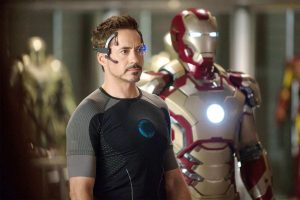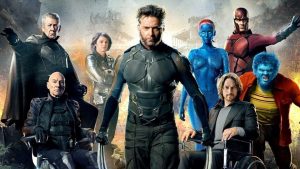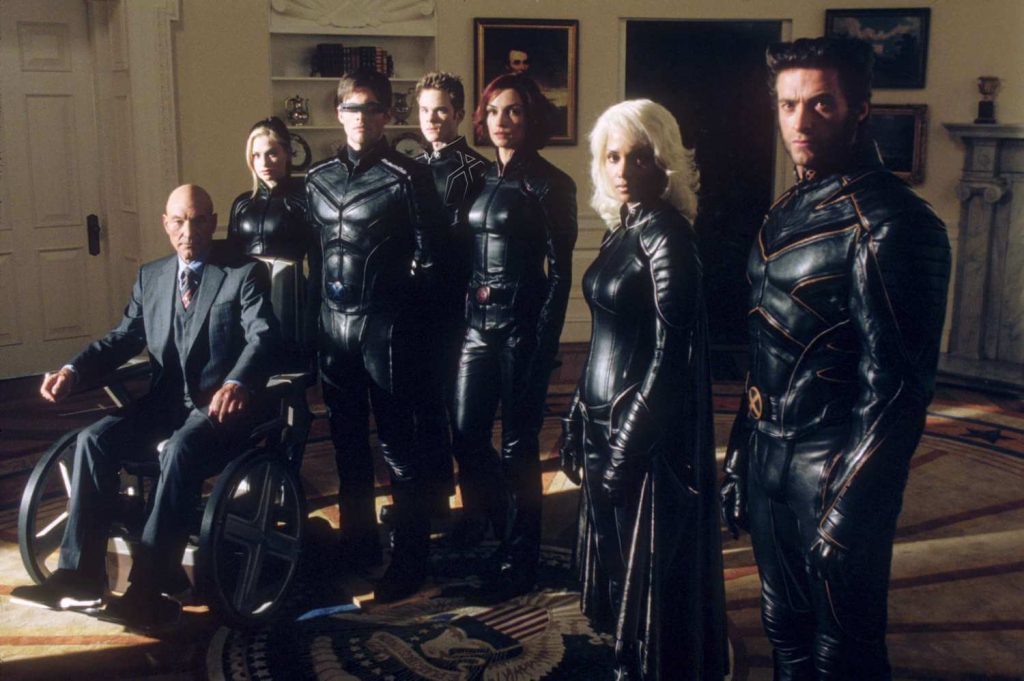world news
Marvel’s Bold Recasting Era: Kevin Feige Confirms X-Men and Iron Man Reset After Avengers: Secret Wars
The Turning Point: A Universe Ready for Renewal
The Marvel Cinematic Universe is standing on the brink of a transformational shift. At a recent press event, Marvel Studios President Kevin Feige officially confirmed what fans and insiders have been speculating for months: the MCU is preparing to recast iconic characters—including Tony Stark (Iron Man), Steve Rogers (Captain America), and the entire X-Men lineup—following the release of Avengers: Secret Wars in 2027. Describing this shift as a “reset,” Feige drew a clear line between refreshing the universe and completely starting over. His words—“Reboot is a scary word. Reset, singular timeline—we’re thinking along those lines”—sent ripples through fandoms across the globe.
This statement marks the clearest articulation yet of Marvel’s strategy for revitalizing its shared universe, which now spans 15 years and more than 30 films. While earlier phases emphasized continuity and interconnectivity, the next stage appears to be built around strategic reinvention—keeping the mythos alive while inviting new actors and interpretations. Importantly, Feige stressed that Secret Wars will not erase what came before, but will instead offer a narrative inflection point, opening a door for creative reimagining while respecting the groundwork laid by beloved performers like Robert Downey Jr. and Chris Evans.
The MCU has always excelled at evolving its storylines in response to both creative goals and audience demand. This new approach, though risky, is also exciting—it acknowledges that superheroes aren’t just costumes or visual effects, but evolving archetypes meant to reflect changing times and generations. In this “reset,” Marvel is doubling down on the enduring power of its characters, and betting that fresh takes on old favorites will inject new life into the MCU’s future.

X-Men Reinvented: A New Generation of Mutants Takes Flight
Among the biggest revelations in Feige’s announcement was the confirmation that the entire X-Men team will be recast. Following the Disney-Fox merger in 2019, Marvel gained the long-awaited rights to the X-Men and the Fantastic Four, laying the groundwork for their eventual integration into the MCU. Since then, fans have speculated how and when these iconic characters would be introduced. Now, Feige has provided clarity: the introduction will fully commence after Secret Wars, with a newly cast ensemble, ushering in a new mutant era.
This decision confirms that Marvel’s upcoming storytelling will not merely adapt previous iterations, but entirely reimagine the mutant narrative within the MCU’s evolving timeline. The casting of younger actors is expected to align with Feige’s stated goal of long-term storytelling potential, as well as a thematic pivot toward youth, hope, and identity. While earlier iterations of the X-Men—such as those portrayed by Hugh Jackman, James McAvoy, and Michael Fassbender—were anchored in themes of persecution and generational trauma, the new generation may explore the mutant metaphor in a more contemporary context.
Directorial choices are also shifting. Thunderbolts director Jake Schreier is rumored to be attached to a standalone X-Men project, indicating Marvel’s intent to bring fresh cinematic language to these characters. The X-Men reboot could become the emotional and thematic nucleus of the next Marvel saga, bridging Phase 7 and beyond. If done right, this bold reinvention could mirror the success of Guardians of the Galaxy or Spider-Man: Homecoming, where new perspectives reignited long-standing franchises. And given the enduring appeal of Wolverine, Storm, Cyclops, and Jean Grey, Marvel has a wealth of opportunity to redefine the future of mutant-kind.
Recasting Tony Stark and Steve Rogers: Endings and New Beginnings
Perhaps no Marvel characters are more sacred to fans than Tony Stark and Steve Rogers, brought to life with unforgettable gravitas by Robert Downey Jr. and Chris Evans. So when Kevin Feige confirmed that Iron Man and Captain America will eventually be recast, it wasn’t just news—it was seismic. While both characters received definitive send-offs in Avengers: Endgame, their influence continues to ripple across the MCU. Now, Feige is preparing to “reset” their stories in ways that introduce new actors, new contexts, and new possibilities.
This move underscores the MCU’s pivot from being actor-driven to archetype-driven. Tony Stark’s genius-billionaire-hero arc and Steve Rogers’ unwavering moral compass are foundational myths within the Marvel narrative, but Feige believes those myths can and should be reinterpreted. “There is more fun to be had with both those characters,” he stated, hinting at alternate timelines or new personalities embodying familiar virtues. It’s a controversial but calculated step toward franchise sustainability, especially with many early actors aging out or stepping away from decade-long commitments.
The MCU has already laid groundwork for this kind of narrative fluidity. The Multiverse Saga, launched with Loki and expanded through Doctor Strange in the Multiverse of Madness, introduced the idea that every hero can exist in multiple versions across timelines. With Secret Wars promising a convergence of universes, Marvel has the perfect story engine to retire old heroes and birth new versions without betraying continuity. As the MCU embraces new blood, fans may grieve the loss of familiar faces—but the promise of renewed legacy could be more powerful than nostalgia alone.

Marvel’s New Strategy: Less Content, More Impact
Feige’s recasting announcement is part of a broader strategy to recalibrate the MCU’s creative output. After years of rapid expansion—including movies, streaming series, and special presentations—Marvel has faced criticism for oversaturation and declining quality. From 2026 onward, Feige revealed, the studio will slow its release cadence, focusing on one major film per year and fewer Disney+ series. This decision reflects a shift from quantity to quality—a return to the event-driven storytelling that made the MCU a cultural powerhouse in the first place.
The two confirmed anchor films for this new approach are Avengers: Doomsday in 2026 and Avengers: Secret Wars in 2027. Both are expected to serve as narrative bookends for the Multiverse Saga, while launching a wave of new talent and character arcs. Between these milestones, the focus will be on deeper world-building, character development, and tighter scripts—a response to the uneven reception of recent entries like Eternals, Ant-Man and the Wasp: Quantumania, and The Marvels. By reducing its pipeline, Marvel hopes to ensure that every release matters, and every character has room to breathe.
This strategy aligns with larger industry trends, where audiences increasingly value prestige, polish, and cohesion over brand volume. Feige’s deliberate pacing is both a tactical retreat and a confident step forward. With fewer distractions and a sharper focus, Marvel can reclaim its narrative momentum and rebuild the sense of anticipation that once defined its every move. In the long run, this restraint could prove essential to the MCU’s continued relevance and emotional impact.
The Road Ahead: Legacy Reimagined, Not Replaced
Kevin Feige’s revelations about recasting the X-Men, Iron Man, and Captain America reflect a bold vision for Marvel’s future—one that honors the past while clearing the way for new stories, new faces, and new fans. Through carefully timed resets, the MCU isn’t erasing its legacy—it’s reinterpreting it. Heroes like Tony Stark and Logan will always be remembered in their original forms, but new iterations will allow these characters to evolve alongside the culture that embraces them.
Feige’s balancing act is delicate. He must satisfy die-hard fans who’ve invested over a decade in this universe, while also crafting stories compelling enough to attract fresh audiences. But if the multiverse has taught us anything, it’s that identity is fluid and that power lies in reinvention. With Secret Wars as the catalyst, the MCU is poised for a metamorphosis—a shift not in tone, but in trajectory. What once was seen as the end of an era may, in hindsight, be viewed as the beginning of something just as transformative.
As Marvel prepares to enter this new age, fans can expect surprises, risks, and perhaps a few heartbreaks. But they can also expect renewal—a creative renaissance that keeps the MCU not only alive, but vibrant. In the words of Tony Stark himself, it’s not about how it starts—it’s about how it ends. And in this case, it may also be about how it begins again.
From greylittlearrows


